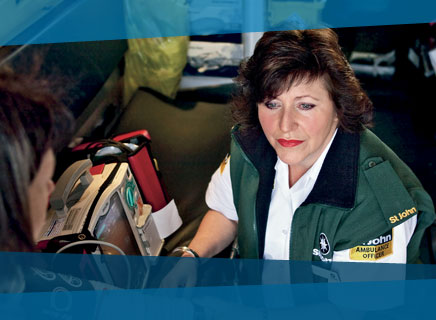Since introducing our human rights standards in 2010 – 'Respecting people and communities: ANZ’s approach to human rights', we have taken a number of steps to bring them to life for our staff, customers and suppliers.
Our priority in the first year of implementation was to identify the areas of greatest risk and opportunity for promoting human rights. Three initiatives were identified and progress has been monitored throughout the year. These include:
-
reviewing our People policies to ensure they reflect our human rights standards
-
defining the human rights standards and acceptable behaviours we expect of suppliers
-
integrating the standards into our social and environmental training program to help staff responsible for making business lending decisions.
Building global alignment in our people policies
Our People policies have been reviewed to ensure they reflect our human rights standards and provide similar access to entitlements for all staff.
As a result, we have introduced a number of new policies such as the Global Study Assistance Policy and Global Flexible Work Arrangement Policy, which assist our people to achieve a healthy work/life balance.
For many of our staff, particularly those in the Asia Pacific region, the review has led to them having access to entitlements, such as study leave and leave for professional development.
Supporting better sourcing decisions
We have strengthened and expanded our Global Sourcing Framework to embed responsible sourcing practices in every country where we operate.
This has involved the development a new Global Sourcing Policy which defines the principles and behaviours expected of all employees, consultants and contractors, and requires that all procurement be undertaken in line with our business values, Code of Conduct and Ethics, CR priorities, and our human rights standards.
We have also developed a new Supplier Code of Practice (SCOP), which outlines the standards we expect our suppliers to meet as a condition of doing business with us.
The SCOP expands on previous commitments and includes new, explicit requirements related to business ethics and human rights such as: adherence to international standards and domestic regulations relating to the employment of children; and the prohibition of unethical business practices, such as inappropriate gifts. We also actively encourage our suppliers to influence their own supply chains to meet these same standards.
Taking account of human rights in our lending
We have integrated our human rights standards into a new mandatory training program developed to help corporate lending staff take greater account of social and environmental risks and opportunities.
Staff who complete the program – those responsible for making business lending decisions – learn about social and environmental risk analysis and how our responsible lending policies, including our human rights standards, should guide lending decisions.
The training program complements other policies and processes already in place, such as our sensitive sector policies and our social and environmental screening tool.
The social and environmental screening tool was developed to help staff assess all new and existing customer relationships, on at least an annual basis. The tool helps our staff identify, mitigate and manage social and environmental risks.
Our sensitive sector policies were reviewed in 2011 to ensure they provide clear and relevant decision-making principles to help guide our investment in socially and environmentally sensitive sectors, specifically water, forestry and forests, energy, and extractive industries. The policies apply wherever we operate and to all services we provide to customers from lending through to corporate advisory work. Information on our updated policies can be found at anz.com/cr.
Together, these policies and tools are helping us to embed a culture of responsible lending across our business and ensure that economic, social and environmental risks and opportunities (including our human rights standards) are balanced in all our actions and decisions.






